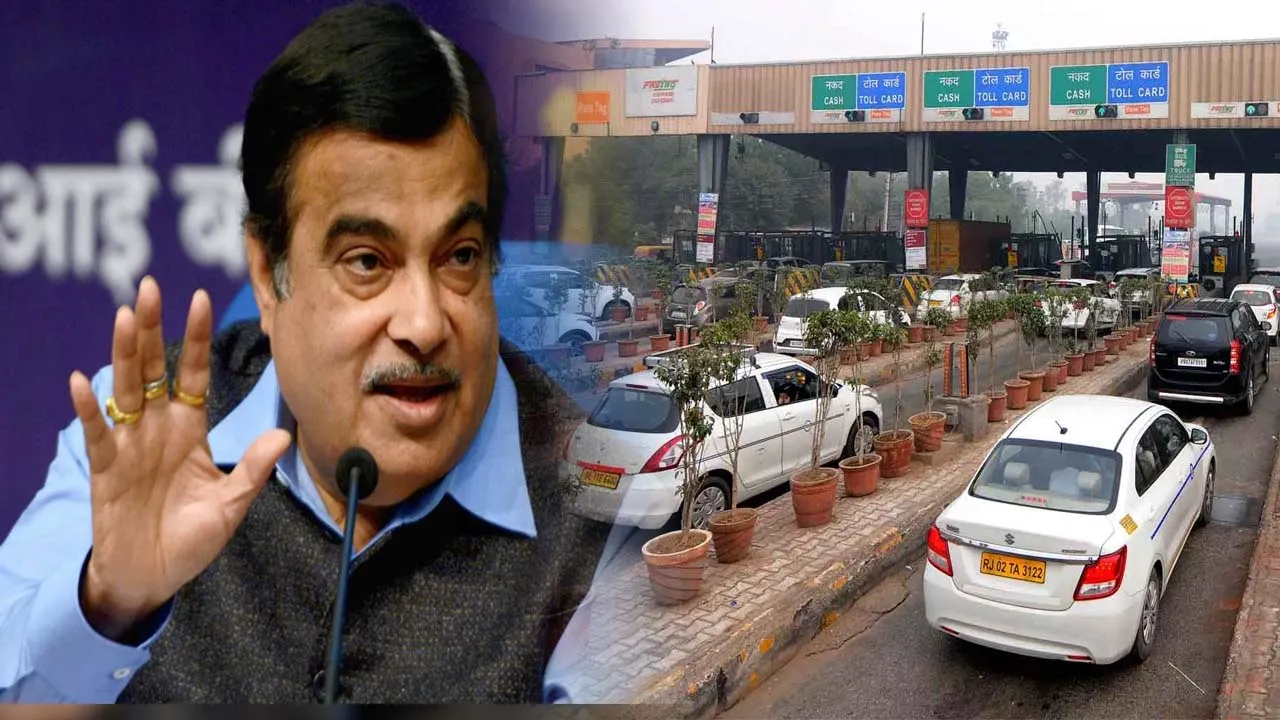Nitin Gadkari has announced a new toll policy, which will change the method of toll collection from 2025. The new policy includes facilities like ANPR technology, distance-based fees and annual passes.
A new toll policy is going to be implemented in the country very soon. In the new toll policy, you will not have to worry about FASTag. There is a proposal that toll collection will be linked to satellite. If the FASTag is not working, then the camera installed on the plaza will read your number plate and the toll amount will be deducted directly from your account. Not only this, you will be charged toll only according to the distance your vehicle travels on the highway. The new toll policy announced by Road Transport and Highways Minister Nitin Gadkari has many more features, which you will read about further.
Under this policy, passengers will now be able to travel on national highways at a reduced cost, and will also get relief from traffic jams at toll plazas. Several new facilities are being added to it, including provisions like annual and lifetime passes, distance-based tolls and seamless toll collection. This policy has been specially designed keeping in mind those who use national highways daily or continuously. At present, the cost of a monthly pass for a toll plaza is around ₹340, which goes up to ₹4,080 in a year. Also, under the new policy, unlimited travel on any national highway will be allowed for just ₹3,000 throughout the year. This change will benefit private vehicle owners the most, as they account for 60% of toll traffic, while their contribution to the total toll revenue is only 21%.
Barrier-free tolling and distance-based charging
The government has also clarified that satellite-based tolling will not be implemented across the country from May 2025. Instead, a ‘barrier-free tolling system’ will be implemented on select highways using a combination of ANPR (automatic number plate recognition) technology and FASTag. There will be no need to stop at toll plazas, cameras will scan the vehicle’s number plate and the toll will be deducted automatically. This system has already been successfully run as a pilot project on routes like Bengaluru-Mysore and Panipat-Hisar.
Along with this, another major change is that toll free distance of up to 20 km per day has been made available for private vehicles. That is, if a person covers a distance of 20 km or less per day, he will not have to pay toll – provided his vehicle has FASTag or GNSS tracking system. For distances above 20 km, toll will be charged at the rate of Rs 50 per 100 km. This system will directly benefit local commuters and daily commuters.
Old rules and grievance redressal system to be strictly enforced
Under the new policy, the government is also going to strictly enforce the 2008 rule, according to which there should be a minimum distance of 60 km between two toll plazas. Till now, this rule has been often ignored, due to which commuters have to pay toll for every short distance. While exemptions can be granted in certain situations – such as municipal limits, state limits or commercial viability of the project – such cases will be kept to a minimum.
Apart from this, the government has also said that a new grievance redressal system is being prepared to quickly resolve the complaints of the people regarding toll collection. In this, the problems of excess toll deduction, double deduction or other irregularities will be resolved quickly. Also, due to the ‘one vehicle, one FASTag’ policy, now there will be only one valid FASTag for each vehicle, which will stop fraud.
Revenue and future plans
Toll collection in India is steadily increasing. In the financial year 2024, toll revenue was ₹64,810 crore, which is 35% more than the previous year’s ₹48,028 crore. Uttar Pradesh and Rajasthan are at the forefront in this regard. This revenue is being invested in national schemes like Bharatmala Pariyojana, under which 18,700 km of roads have been built so far. Gadkari claims that toll revenue can reach ₹1.40 lakh crore in the next two years, which will give a boost to new projects worth about ₹5 lakh crore.
